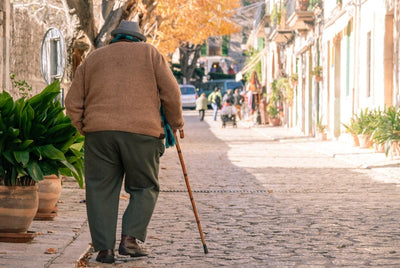The Benefits of Bed Alarms for Elderly & Dementia Patients
If you are considering using a bed alarm for an elderly or dementia patient, there are a few things you should know. This guide will provide you with everything you need to know about bed alarms, including how they work, the benefits and drawbacks, and how to choose the right one.
What are Bed Alarms?
Bed alarms are devices that are placed on a bed and sound an alarm when the patient gets up. They are often used for elderly or dementia patients who are at risk of falling out of bed.
How Do Bed Alarms Work?
Bed alarms work by sensing when the patient gets up out of bed. They are usually placed under the mattress or on the bed frame. When the patient gets up, the alarm will sound, alerting caregivers that the patient is up and out of bed.
What are the Types of Bed Alarms?
There are two main types of bed alarms:
- Wireless bed alarms
- Corded bed alarms
Wireless bed alarms are battery-operated and use sensors that are placed under the mattress or on the bed frame. They are often used in home settings.
Corded bed alarms are plugged into an outlet and use sensors that are placed under the mattress or on the bed frame. They are often used in hospitals or other institutional settings.
What are the Benefits of Bed Alarms?
There are many benefits of bed alarms, including:
1. Prevent Falls
One of the main benefits of bed alarms is that they can help to prevent falls. When patients get up out of bed, they are at risk of falling and injuring themselves. Bed alarms can help to prevent falls by alerting caregivers that the patient is up and out of bed.
2. Reduce Wandering
Another benefit of bed alarms is that they can help to reduce wandering. Patients with dementia often wander around and can get lost. Bed alarms can help to reduce wandering by alerting caregivers that the patient is up and out of bed.
3. Increase Patient Safety
Another benefit of bed alarms is that they can help to increase patient safety. Bed alarms can help to prevent falls and wandering, both of which can lead to injuries.
4. Improve Patient Care
Another benefit of bed alarms is that they can help to improve patient care. When patients are up and out of bed, they need to be monitored closely. Bed alarms can help to improve patient care by alerting caregivers that the patient is up and out of bed.
5. Reduced Stress
Bed alarms can also help to reduce the stress of caregivers. When caregivers know that the patient is safe, they can focus on other tasks.
How to Choose a Bed Alarm for Elderly Patients
There are a few things to consider when choosing a bed alarm for elderly patients. First, consider the needs of the patient. If the patient is at risk for falls, then a bed alarm with a fall detection feature may be a good option.
Second, consider the environment in which the bed alarm will be used. If the patient is in a hospital or nursing home, then a bed alarm with a loud alarm may be a good option. If the patient is at home, then a bed alarm with a softer alarm may be a better option.
Third, consider the budget. There are a variety of bed alarms on the market, and the price can vary. Choose a bed alarm that fits the budget.
Fourth, consider the features of the bed alarm. Some bed alarms have additional features, such as fall detection or wireless connectivity. Consider which features are most important for the patient.
Finally, consider the warranty. Some bed alarms come with a warranty, and this can be a valuable feature. Choose a bed alarm with a warranty that meets the needs of the patient.
Conclusion
There are a few things to keep in mind when considering using bed alarms for elderly or dementia patients. First, it is important to ensure that the alarm is properly fitted to the bed. Second, the alarm should be tested regularly to ensure that it is working properly. Finally, it is important to be aware of the possible side effects of using an alarm, such as increased anxiety or agitation.
Getting the best bed alarm for elderly is an important step to making both your loved one and the primary caregiver's life more convenient. Learn more tips on how you can help keep your elderly safe and healthy today from tips shared by HearGlow!
Related Articles









